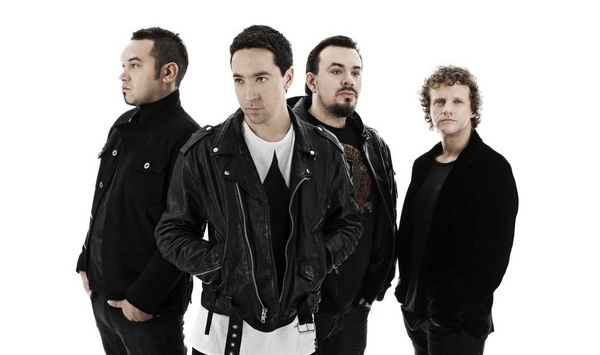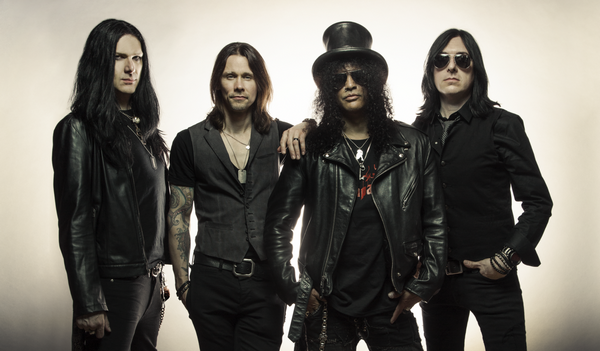Since Shihad music is so riff-driven, where do they come from? “Okay, we’ve been experimenting with this tuning which is basically standard E with the bottom string dropped to a bass-register A,” Toogood says. It’s quite hard to play because the low string is really floppy but once you get used to it, it makes this wall of sound. You get a decent amp and turn it up loud, and then you play with a great bass player like Karl (Kippenberger) and a great guitar player like Phil (Knight), and when you all play in unison and are in tune it sounds like Satan’s bass player. It’s just a huge sound.”
But a serendipitous moment occurred when an airline knocked one of the guitars around a bit and bumped the lowest string even further down. “The bottom string had dropped even lower to a G# or something, and it was like this weird discordant thing going on. And the first thing I did with it was write the riff to Fine Lines, which is the second track on the record. It’s basically like a detuned Immigrant Song by Led Zeppelin. And it was like, ‘Alright, that sounds gold – let’s do the whole record in this tuning’. As long as everyone is playing in tune and in time and tight, it just makes this huge sound.”
It wasn’t just the ‘Satan tuning’ that took Shihad out of their safety zone this time around; they decided to leave the comfort of drummer Tom Larkin’s studio to see what would happen when they didn’t have the luxury of time. “The thing is, on the last tour we basically had Tom’s studio in Brunswick, and what it’s meant is because we’re competent in the studio we got a little bit lazy,” Toogood admits. “It’d be like, ‘Cool, I’m coming to the studio, sweet… um… let me just check some emails and make some calls… I’m gonna go get a coffee’. And everything was lazy. And the thing is, we’re a fucking rock band. And a rock band is supposed to be urgent, so a few things went into changing the whole way we make records and one of them was firstly, Jaz Coleman [Killing Joke] was going to produce the record. He produced Churn, our first album, and he’s very anti-radio, he’s very anti-industry, he’s very ‘Let’s make it fucking heavy’, basically, and ‘don’t give a shit about anything’.”
According to Toogood, Coleman’s grand plan wasn’t to create a new Shihad album. “His attitude was ‘We’re not making an album. We’re making a brand new setlist that you can go on stage anywhere in the world with destroy any band that tries to step on you’.”
Another factor driving the album’s intensity and darkness was the band’s recent stint supporting Black Sabbath on the Australian leg of their 13 world tour. “Black Sabbath is another reminder of ‘heavy is good’. Because heavy is good. And LiveEvil, even though it’s Ronnie James Dio singing on it, was one of the first records I ever bought, so it was pretty awesome to hear them live, and also to hear Tony Iommi turning up three hours before he played. His backstage room was right next to ours and he would literally play for three hours every night before he went on stage, because he was in Black Sabbath and he wasn’t going to let anyone down. And I love that. That’s the sort of band I want to be in, where you’ve got a standard and you don’t want to drop below it because it’s a matter of life and death. It was awesome to see a guy 20 years down the track from me still doing that.”
BY PETER HODGSON

